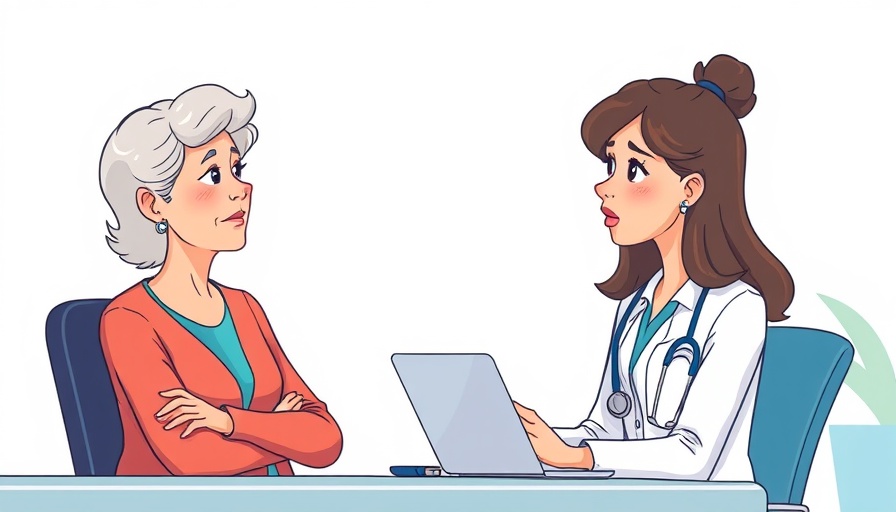
Understanding the Overlooked Link Between Menopause and Mental Health
As women transition through menopause, a profound change occurs not only physically but also mentally. It's common for many to focus on the tangible physical symptoms – like hot flashes and night sweats – but we must also pay close attention to the mental health challenges experienced during this stage. With hormonal fluctuations leading to symptoms such as anxiety, mood swings, and cognitive lapses, understanding the full spectrum of menopause is crucial.
Widespread Impacts of Menopause on Women’s Mental Well-Being
Statistics reveal that menopausal women face immense pressures: up to 70% experience mood changes, while nearly 60% deal with cognitive difficulties like memory lapses often referred to as 'brain fog'. Sleep disturbances, impacting around 50% of women, further exacerbate these conditions. Recognizing these alarming statistics sheds light on the crucial need for proper intervention and care during menopause.
The Hormonal Role in Mental Health Challenges
The decline in estrogen and progesterone is not merely a biological event; it has significant implications for mental health. Low estrogen levels can influence the brain's serotonin production, leading to heightened feelings of sadness or anxiety. Women might find themselves in a cycle where mood disturbances make sleeping challenges worse, creating an ongoing struggle that can feel overwhelming.
Best Practices and Effective Treatments Explored
Recent advances in treatment highlight promising options. Hormone Replacement Therapy (HRT) is increasingly recognized as an effective first-line treatment, yet only a small percentage of women over 50 are prescribed this option. Additionally, Cognitive Behavioral Therapy (CBT) has proven beneficial for managing symptoms, offering a non-pharmacological route for relief. Newly approved non-hormonal medications like Veozah provide alternative options for those hesitant about hormone therapy.
Empowering Women Through Better Education
A key barrier remains: awareness. While 90% of women discuss their menopausal symptoms with healthcare providers, only 25% receive appropriate diagnoses related to menopause. This discrepancy highlights the need for improved education among healthcare practitioners to better identify and treat menopause-related mental health struggles. By shifting the conversation and ensuring that healthcare providers fully recognize the implications of menopause, we can empower women to seek the help they need.
As you navigate the complexities of menopause, remember that understanding and addressing these mental health challenges is essential for overall well-being. Whether through seeking professional help, educating yourself on treatment options, or sharing experiences with others, prioritize your mental health during this critical phase of life.
 Add Row
Add Row  Add Element
Add Element 



 Add Row
Add Row  Add
Add 
Write A Comment